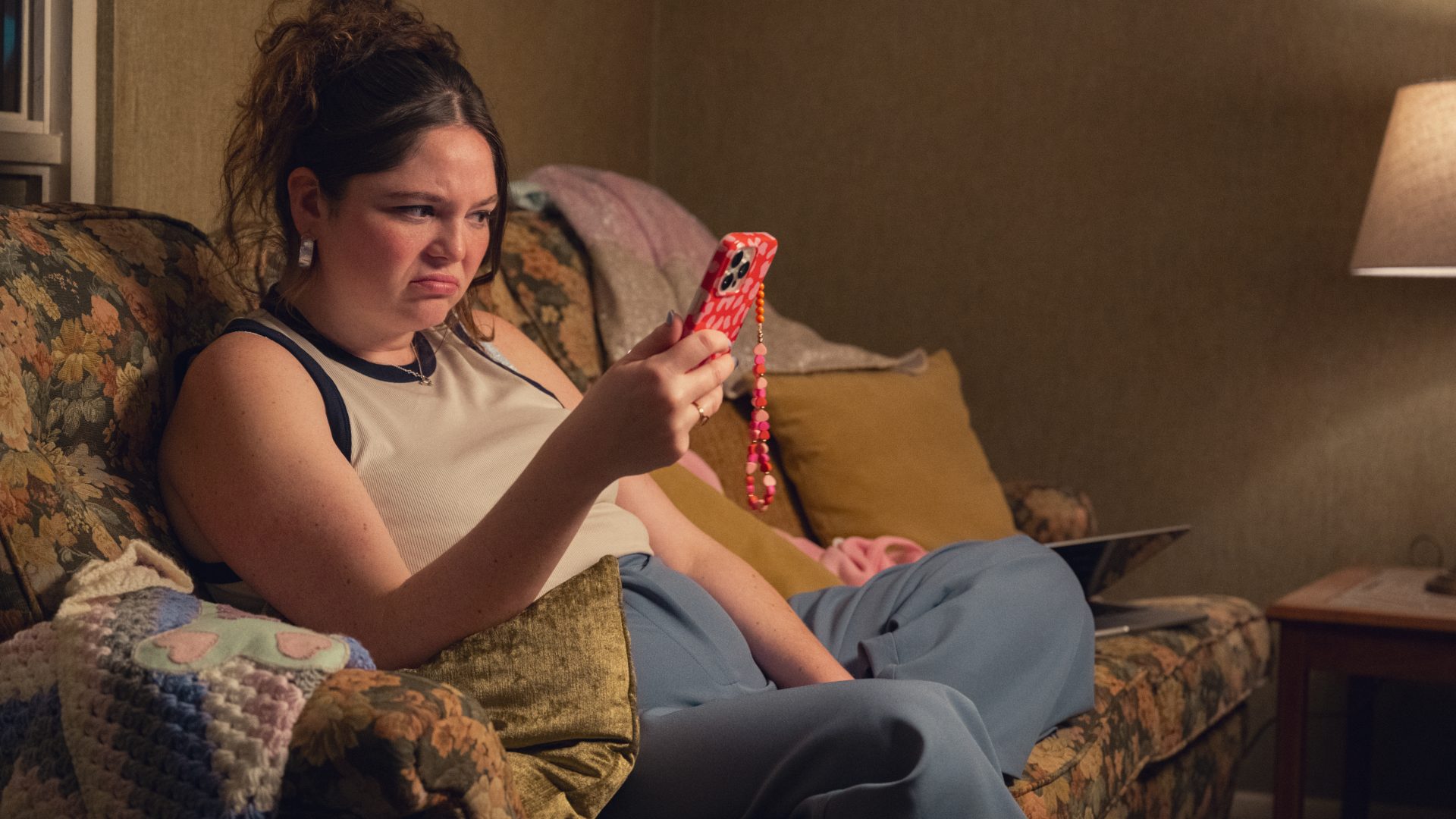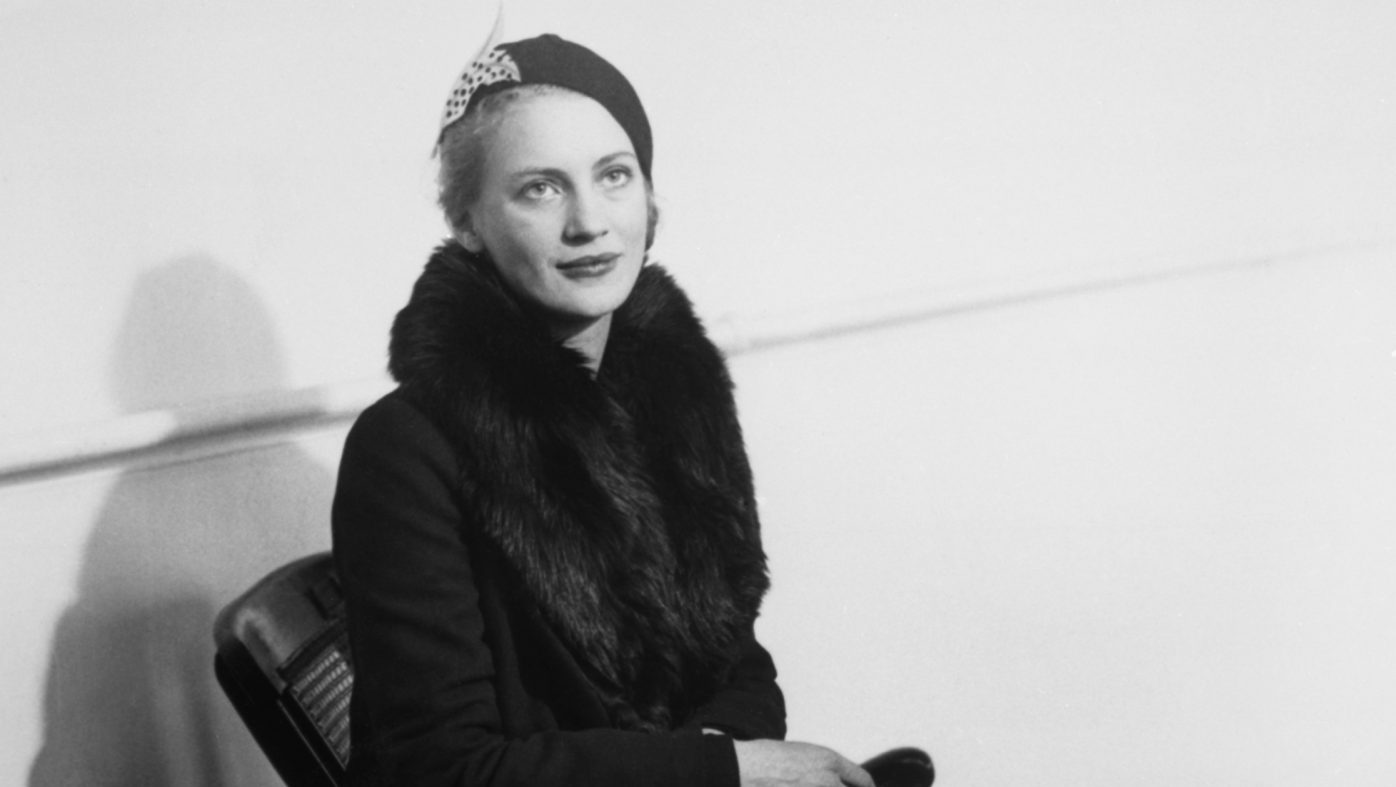Too Much
(Netflix)
Though widely billed as a rom-com, Lena Dunham’s first major television project since the six-season HBO smash hit Girls ended in 2017 is so much more than that: literally, and figuratively, it contains multitudes.
Not least, it is a (sometimes exasperated) love letter to London, in all its teeming multiplicity; loosely based on Dunham’s life in the city since she moved here in 2021. The show’s co-creator is the man she met and married, British musician Luis Felber.
Heartbroken after finding her fiancé Zev (Michael Zegen) in bed with “knitwear influencer” Wendy (Emily Ratajkowski), Jess (Megan Stalter, sensational) leaves Long Island to take up a new job at an ad agency on this side of the Atlantic and to tend her emotional wounds. Unimpressed by Wendy’s bid to pacify her – “I want to hold space for how you’re feeling” – she records hundreds of video messages addressed to her nemesis, never intending to send them or make them public (what could possibly go wrong?).
Jess’s preconceptions of Britain are entirely refracted through the lens of movies and historical drama: “I mean, nobody’s fucking an influencer in the works of Jane Austen!” Expecting “some real Merchant Ivory type shit”, she is surprised to discover that Hoxton Grove Estate is not a stately residence nestling in a bucolic Regency setting. In a moment of rage, she refers to The British Jones Diaries.
No less unsettling is the speed with which she finds herself falling for Felix (Will Sharpe), a struggling musician who oscillates between hard-won wisdom and bafflement at the world’s mysteries. The whip-smart dialogue between the two – sometimes screwball, sometimes intense – is the heart of Too Much, and, across ten episodes, meanders from banter via heartache and misunderstanding back to deepening love. You believe entirely in the strength of their mutual attraction and also the extent to which they are affectionately perplexed by one another.
No less impressive is the galaxy of the stars recruited by Dunham for cameo roles. Andrew Scott is Jim, a jaded director, who regards a festive gift ad as beneath his talents as an auteur: “We’ve gotta make this feel like it’s… it’s Ken Loach making a Christmas film.”
It is no such thing, of course, as Rita Ora, playing herself, makes clear on-set (“I look like a horny Dobby the house elf!”). Jennifer Saunders turns up as one of Felix’s ex-lovers, as do Adwoa Aboah and Adèle Exarchopoulos. Stephen Fry plays Felix’s father, Simon, on his uppers and battered by life, with perfectly observed English melancholy.
Best of all are Richard E Grant and Naomi Watts, as Jess’s boss Jonno and his wife, Ann, who live in affluent Notting Hill and, in one of the funniest episodes, throw a coke-fuelled dinner party for the team. Grant is hilariously disinhibited and deranged – “I encourage feelings!” “How do you feel about buttock implants?” – and, remembering that Felix was at school with his daughter and cheated on her, delivers a Withnail-worthy masterclass in rubbish intergenerational fighting.
Leo Reich is also terrific as Jess’s pink-haired colleague Boss, who is ashamed of his heterosexual past but proud of his unfiltered verbal acidity: “You’re realizing that middling white women feel terrible where they go. I know. I think this is the best that it gets for you. You’re not Dua Lipa”.
Dunham herself plays Jess’s sister, Nora, whose husband has deserted her in search of polyamory. Their FaceTime transatlantic conversations are full of acerbic bon mots and gentle wit, like a digital Greek chorus. Yet another highlight in one of the best streaming series you will watch all year.
Superman
(General release)
James Gunn’s relaunch of the Man of Steel franchise – and, indeed, the entire DC Universe – begins in medias res with the red-caped superhero plummeting from the heavens into the Arctic snow, three minutes after his first defeat, at the hands of the self-styled “Hammer of Boravia”.
Whistling for help, he is soon assisted by his excitable “foster” dog (a precise description explained much later), Krypto, who drags him back to the Fortress of Solitude, to be patched up by robots. All of which signals good news: we are not going to have to sit through Superman’s origins story again.
A caption at the start of the movie also tells us that he has been fighting the good fight for three years, and we quickly learn that, as Clark Kent, he is working at the Daily Planet, and already in a relationship with star reporter Lois Lane (Rachel Brosnahan), who knows all about her boyfriend’s dual identity.
Wisely, the well-cast David Corenswet leans into the goofier, good-natured interpretation of Superman that the late Christopher Reeves pioneered in 1978, and steers away from the brooding demi-god style of Henry Cavill. This is also a superhero who embraces his status as an immigrant – Lex Luthor, played with icy menace by Nicholas Hoult, denounces him with MAGA-style fury as “the Kryptonian” – and believes that he is not only entitled but obliged to intervene in geopolitical crises to prevent bloodshed.
Though the movie tries to do too much, not least to pitch roll future instalments of Gunn’s narrative plans, it comes to life when the director plays to his strengths as a creator of video-game style immersive experience for the many action sequences.
By far the best act of Superman is set in a “pocket universe” created by Luthor, which transplants into this new setting the epic sonic and visual bombardment of Gunn’s Guardians of the Galaxy trilogy (2014-23). Again, he is most sure-footed when injecting wit into the narrative, particularly with the engagingly naff Justice Gang: Green Lantern (Nathan Fillion), Hawkgirl (Isabela Merced) and Mr Terrific (Edi Gathegi), who all but steals the show.
Seventeen years after Iron Man launched the Marvel Cinematic Universe, audiences are understandably suffering superhero fatigue. Whether or not Gunn has what it takes to get the lumbering DC machine up and running again remains open to question. But – as a first shot – this is entertaining popcorn fare.
Bookish
(U&alibi channel via Sky, Virgin and NOW, July 16)
A little over a quarter century since he co-created The League of Gentlemen, Mark Gatiss has left an indelible mark upon contemporary culture: from the four seasons of Sherlock that he and Steven Moffat masterminded (and in which he played Mycroft Holmes), via the BBC’s annual A Ghost Story for Christmas that he has written since 2013, to his thoroughly-deserved Olivier Award last year for his performance as John Gielgud in Jack Thorne’s The Motive and the Cue.
Now, he has created a gem of a detective show, in which he also stars as Gabriel Book, an antiquarian bookseller and amateur sleuth, often to be found advising police Inspector Bliss (Elliot Levy), helping with “the fiddly bits”. Set in London in 1946, the six-episode series – three two-part mysteries – explores a cityscape full of hope but still haunted by the vivid legacy of the war.
In Book’s Books (est. 1791), he lives and works with his wife Trottie (Polly Walker), to whom he is devoted – but chastely so, since Gabriel is gay at a time when homosexuality was still strictly illegal.
For reasons that are only revealed in the final episode, they have offered a fresh start to Jack Blunt (Connor Finch), recently released from prison, who soon befriends Nora (Buket Kömür) – one of many characters drawn into Gabriel’s orbit. Along the way, they investigate poisonings (prussic and hydrochloric acid, not to mention strychnine), and a reporter found dead at the bottom of the stairs in a movie studio.
As in Too Much, the list of co-stars is remarkable: Daniel Mays, Paul McGann, Tim McInnerny (sporting an eye patch), Joely Richardson, Rosie Cavaliero. Not surprisingly, Gatiss embraces the erudition of his character – most movingly, with lines from Tennyson; a counterweight to the puckish sense of mischief that makes Bookish so watchable. Roll on season two.
Invisible Rivals: How We Evolved to Compete in a Cooperative World – Jonathan R. Goodman
(Yale University Press)
Few non-fiction books have made me examine my preconceptions so deeply as this remarkable study of human interaction. Goodman, a Cambridge social scientist, draws upon oncology, ethnography, anthropology and politics to challenge the assumption that our default position is cooperation.
“Our cultural core,” he writes, “is not whether we fish or hunt or forage to subsist, but how our norms permit some people to hold power over others. If you want to understand a society, including your own, look at how people are exploited.” But the book is emphatically not a counsel of despair; it is a warning against complacency.
Along the way, Goodman addresses virtue-signalling; the surveillance society; the collapse of trust; autocracy; supposedly “institutional” bias; and the true nature of fairness. You can hear TNW founder and editor-in-chief Matt Kelly and I in conversation with him in the episode of The Two Matts posted on July 3.
A Gathering of the Angels: A Tribute and Celebration of the world of David Lynch
(Genesis Cinema, Whitechapel, London, September 27-28)
Book now for what promises to be a fantastic exploration of the work of one of modern cinema’s true geniuses, who died in January. The line-up, to be finalised next month, already includes the first UK screening of I Know Catherine, The Log Lady, a documentary tribute to Twin Peaks icon Catherine E. Coulson; a live-action, immersive Mullholland Drive Dreamscape; a Q&A featuring the great Dexter Fletcher on The Elephant Man; and a big-screen presentation of Twin Peaks: Fire Walk With Me. Not to be missed.




